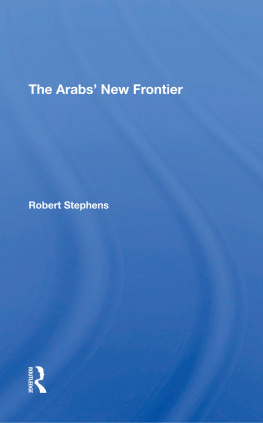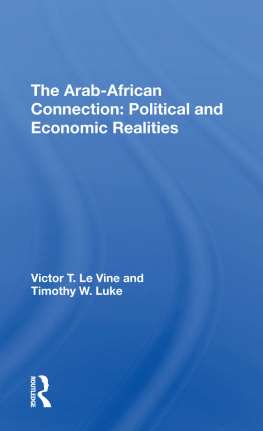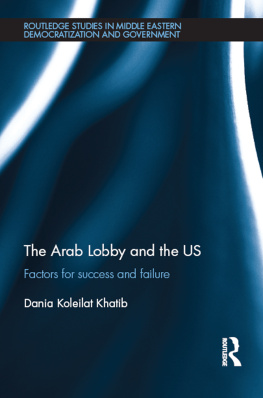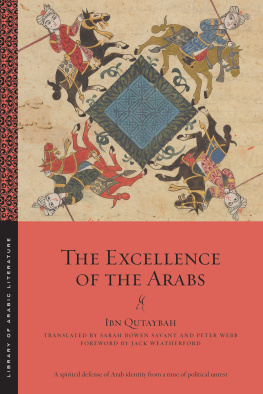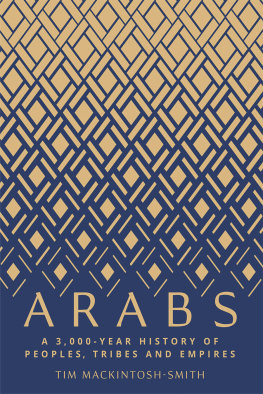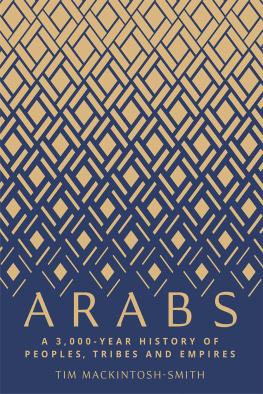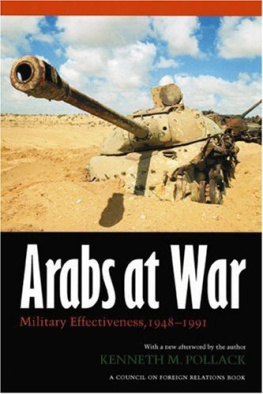THE ARABS' NEW FRONTIER
The Arabs' New Frontier
Robert Stephens
First published 1976 by Westview Press
Published 2019 by Routledge
52 Vanderbilt Avenue, New York, NY 10017
2 Park Square, Milton Park, Abingdon, Oxon OX14 4RN
Routledge is an imprint of the Taylor & Francis Group, an informa business
Copyright 1976 by Robert Stephens
All rights reserved. No part of this book may be reprinted or reproduced or utilised in any form or by any electronic, mechanical, or other means, now known or hereafter invented, including photocopying and recording, or in any information storage or retrieval system, without permission in writing from the publishers.
Notice:
Product or corporate names may be trademarks or registered trademarks, and are used only for identification and explanation without intent to infringe.
Library of Congress Cataloging in Publication Data
Stephens, Robert Henry, 1920
The Arabs' new frontier.
Includes index.
1. Arab countriesEconomic conditions.
2. al-Sundg al-Kuwayti lil-Tanmiyah al-Iqtisdiyah
al-'Arabiyah. I. Title.
HC498.S8 1976 338.91'17'4927 76-27890
ISBN 13: 978-0-367-29017-7 (hbk)
This book is about an institution whose work has hitherto not been widely known but which was until recently unique in the Arab world and in some ways in the world as a whole, the Kuwait Fund for Arab Economic Development. The first edition, published in 1973 was intended primarily as a description and analysis of the first ten years of the Fund's operations.
It seemed to me then that the Fund's work could best be understood by placing it where possible in the broader context of the economic and social background of the Arab countries where it was being carried out. In the course of collecting material for the book I travelled to almost every country in the Arab world, including two countries, Libya and Saudi Arabia, which had not received Kuwait Fund loans since they had large oil revenues of their own. The resulting work was meant not only to give a comprehensive account of the Fund's operations and its special character, but also to convey a picture, not of course by any means intended to be complete, of some of the problems of economic and social development in the Arab world and the efforts being made by many Arab countries to overcome them.
The first edition then appeared just as the 1973 Middle East war and the accompanying oil 'crisis' had brought a spectacular increase in the oil money available for development and a revolutionary change in the economic prospects of the Arab world. The change also led to the quintupling of the capital of the Kuwait Fund and an extension of its role from the Arab world to all developing countries.
It is too soon to attempt to give a full account of the impact and likely consequences of the great increase in oil revenues and the new development possibilities they open up, but it seemed worthwhile to try meanwhile to bring this book up to date as far as possible in the light of these latest developments, while preserving what is still valid of the general picture of the Arab world given in its first version. And that is what I have tried to do.
I should like to repeat here the thanks I expressed in the first edition to ail those in the countries I visited, ministers, officials, businessmen, farmers, economists, journalists and others, who generously gave their time to talk to me or show me projects. Once again I also wish particularly to thank the Director-General of the Kuwait Fund, Mr Abdulatif Youssef Al Hamad, and his colleagues who, in preparing both editions, were immensely helpful in placing at my disposal the Fund's own studies and documentation, as well as their own writings and the fruits of their personal experience.
The book and its revision were made possible by financial support from the Fund, but I was left entirely free in my treatment of the subject and in my comments on the Fund's operations. For the final contents of the book and its judgements and conclusions I alone am responsible.
Behind the Arab world of the newspaper headlines, with its flavour of exotic political melodrama and its cliches about multi-billionaire oil sheikhs holding us all to ransom, there is another Arab world the West still knows very little about, but is now being forced for its own sake to discover.
It is the bread-and-butter, everyday world of the Arab countries where people have to earn their living, the world of farmers, factory workers, businessmen, civil servants, engineers; where tractors and trucks have long been replacing camels, where giant dams and diesel pumps are taking over from water-wheels, where more and more villages rely on power stations instead of kerosene lamps, where hundreds of thousands of students go to modern universities instead of Koranic schools, where more and more girls work computers and run clinics instead of staying behind veils and shutters at home, and where even oil sheikhs are likely to have graduated from Harvard or the London School of Economics.
It is a world in the throes of mighty change, pressed forward sometimes too fast for its own comfort and taste, not only by the impact of industrial civilisation, but also by its own inner demands for modernisation, independence, unity and social justice. It is the part of the developing Third World that is nearest to Western Europe (if one excludes Greece and Turkey) and the most closely linked with Europe historically, culturally and economically.
Nevertheless, even in Europe public ignorance of this close and important neighbour remained profound and the public image of the Arab world was extraordinarily distorted and out of date. Then came the shock of the Middle East war of October, 1973, and the accompanying oil crisis. Apart from demonstrating the supreme importance of the Arab world in the international balance of power and for the economic survival of the industrialised countries, especially in Europe, the 1973 events showed that the Arabs were capable of mastering the advanced technology and large-scale organisation required both for modern warfare and modern industry. The increase in oil producers' association - indicated the determination of the Arabs fully to control the exploitation of their most valuable but expendable economic resource.
OPEC (Organisation of Petroleum Exporting Countries), the oil producers' cartel - indicated the determination of the Arabs fully to control the exploitation of their most valuable but expendable economic resource.
These changes, together with the dramatic reallocation of international resources implied by the tremendously increased Arab oil revenues after 1973, have led to a new and more evenly balanced relationship between the Arab world and the West. They have also led to at least the beginning of a Western public reappraisal of the old picture of the Arabs, albeit new and equally misleading cliches have sometimes taken the place of the old: the picture of the primitive, incompetent, camel-borne Arab is apt to be replaced by the sinister stereotype of the arrogant, Cadillac-borne oil blackmailer who will either ruin the industrialised countries or buy up their key industries - and at the same time selfishly ignore the increased poverty of the non-oil countries of the Third World. In fact, apart from the limited use of the oil embargo as a political weapon in the Arab-Israeli conflict, both Arab and non-Arab oil producers have encouraged close cooperation with Western governments and business so as to use Western technology and surplus oil-money to modernise and industrialise the oil countries themselves, their region and the developing countries as a whole.


